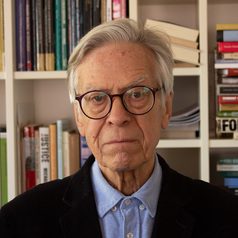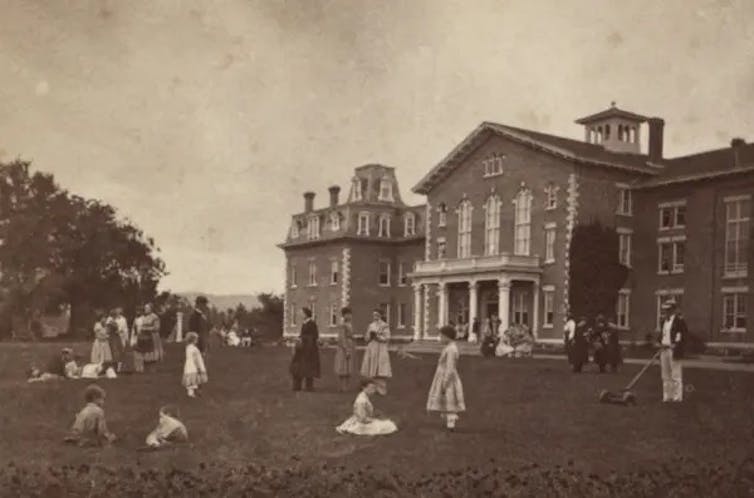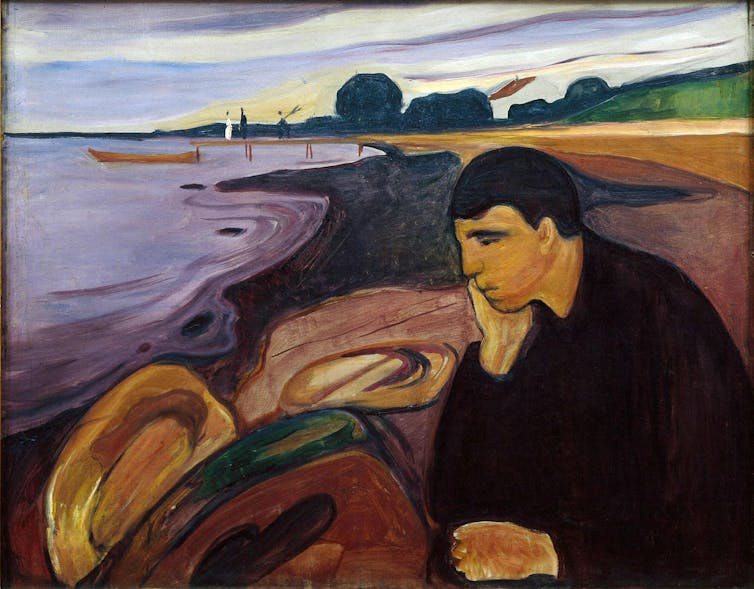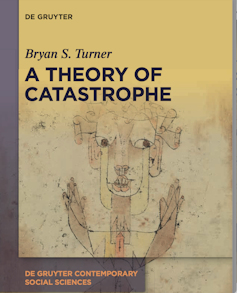As utopian oases dry up, a desert of banality, and bewilderment spreads …
– Jürgen Habermas (1986)
The last few years have been truly catastrophic. One might easily argue that, during “The COVID Years”, we have witnessed more dramatic social and political change than at any time since 1939-1945. In terms of its scale and duration, we should call this pandemic a catastrophe rather than merely a disaster in terms of the loss of life and more mundane issues such as the reorganisation of work and city life.
We have also grappled with the Russian invasion of Ukraine, the increasing possibility of nuclear catastrophe, the spread of monkey-pox, food shortages in Africa, a drought across much of Europe, a potential Chinese invasion of Taiwan, North Korean missile tests, rising authoritarianism in eastern Europe, the threat of civil unrest in the United States, and the terrible earthquake in Turkey and associated crisis in Syria. This has been a cascade of catastrophes.
If we believe we are “all doomed” (to quote a signature line from the TV Series Dad’s Army) what should one do? Do any credible utopian dreams paint an optimistic future? Or is the prospect of human happiness ruled out by the scale of our contemporary problems?
A response to this challenge is to consider the various attempts to defend hope and optimism in the face of previous catastrophes, and pessimistic prescriptions. One modest way forward is the pursuit of intergenerational justice with respect to climate change. What steps might we take to protect or to improve the prospects of future generations?
Thomas More’s Utopia
In many respects, contemporary analysis of catastrophe and utopian hope continues to return to the legacy of Thomas More (1478-1535), whose book Utopia, first published in 1516, has enjoyed a remarkable longevity. In Utopia, More envisioned a society without private property or a propertied class. The population would enjoy the benefits of a welfare state, living a sober and simple lifestyle. They would loathe fighting and any form of violence, hence the death penalty would be banished.
Utopia is often thought to have been a socialist response (before the advent of socialism), to the difficulties of the age in which More lived. But More was a devout Catholic statesman – in 1886 he was beatified by Pope Leo XIII. Utopia reflected the place of monasticism in the Catholic tradition.
Indeed, socialist and Christian utopias have often historically been intertwined. This convergence is important – any contemporary utopian vision might also draw on a Christian belief in a world to come and a socialist vision of a land of plenty, shared by all.
While More’s perfect society was a fiction, there have been many attempts to create actual utopian societies. The Oneida Community, a religious perfectionist commune founded by preacher, philosopher and radical socialist John Humphrey Noyes in New York state, survived from 1848 to 1881. It folded due to conflicts over power, wealth and sexuality.
John Humphrey Noyes’ utopian Oneida community, circa 1870. Wikimedia Commons
More recent utopian societies developed in Southern California in the 1950s and 1960s as hippie communes promoting pacifism and alternative lifestyles involving experiments with drugs and sex. Another example is the Israeli kibbutz movement, which emerged with socialist Zionism in the early 20th century.
In the realm of fiction, many believe that if a utopian tradition continues at all today, it is confined to science fiction. Feminist authors have opted for dystopian visions, famously in Margaret Atwood’s The Handmaid’s Tale (1985) and less so, in Octavia Butler’s 1993 novel The Parable of the Sower. The latter depicts 21st century California in a state of collapse; the streets are militarised and the rich live behind walls. This apocalyptic vision is intended to act as a call to communal action though whether it does so is questionable.
Still, the key issue for much contemporary thinking about utopia is the failures of socialism and the survival of capitalism in its various forms. Indeed many radical sociologists, such as Zygmunt Bauman, have concluded we live in post-utopian times.
Grappling with melancholy
If utopia is no more, are we left only with melancholy in the face of so many modern catastrophes? If discussing melancholy, we must also consider nostalgia. These emotional dispositions – nostalgia, melancholy, pessimism – are hardly new. For instance, Robert Burton’s The Anatomy of Melancholy (first published in 1621) went through many reprints. He rejected what he called unlawful remedies, relying ultimately on “our prayer and physic both together”.
Debate about melancholy was also a basic aspect of psychology in the earlier, Tudor period. Timothe Bright’s A Treatise of Melancholie in 1586 provided the basis for Shakespeare’s Hamlet, whose inability to take decisive action was treated as a key indicator of melancholy.
Edvard Munch Melancholy. Wikimedia Commons
Such historical details remind us that disease categories tell us a lot about social and political conditions. In the history of medical thought, for instance, melancholy was once seen to be the specific companion of intellectuals and monks, who suffered from isolation, contemplation and inactivity.
Modern day thinkers, in particular, may suffer from what Antonio Gramsci called “pessimism of the intellect, optimism of the will”. He meant often rational reflection on our problems leads to pessimism, but we need to counter that by action. Getting involved is more likely to result in a renewed optimism and confidence about the future.
World pain
Germany has a well-established vocabulary for unhappiness and melancholy. The word weltschmerz means “world weariness” or “world pain”. The idea that the world, as it is, cannot satisfy the needs of the mind, became part of the regular currency of romanticism. Philosopher Friedrich Nietzsche promoted nihilism as response to the meaninglessness of existence. Sigmund Freud saw human evil as unavoidable and ubiquitous, rooted in the basic instincts of our nature.
German sociologist Wolf Lepenies, in his 1992 book Melancholy and Society, traces the origins of weltschmerz to the peculiar status of the bourgeois class, who were permanently excluded from entry into the world of the prestigious elite. However, the driving force in Germany after both world wars was the sense of suffering and loss from warfare with no tangible or beneficial outcome.
Another German sociologist, Max Weber, is a major figure in understanding German pessimism. In 1898, Weber suffered from severe neurasthenia due to years of overwork. The condition forced him to withdraw from teaching in 1900. In the two years between the end of the first world war and the Treaty of Versailles, Weber had time to write some of his most provocative reflections on the fate that had befallen Germany. “Not a summer’s bloom lies ahead of us,” he wrote, “but rather a polar night of icy darkness and hardness”.
Beyond the secular standpoint
German social theorist Jürgen Habermas has argued utopian traditions, which imaginatively open up new alternatives for action, are now more or less exhausted. While Habermas has a basically secular view of history, many modern philosophers have turned to religion to extract some hope for the future.
Contemporary secular philosophers such as Alain Badiou have been struck by Paul the Apostle’s proclamation of universalism in the Bible: “there is neither Jew or Greek, slave nor free, male nor female” but all are gathered together in Jesus Christ. Paul’s universal gospel had world-changing consequences.
What Badiou calls “truth-events” are major disruptions to our lives out of which we emerge as different beings. Out of these disruptions, he argues, there are grounds for hope. Hope, he concludes, “pertains to endurance, to perseverance, to patience […]” – qualities that characterised Paul’s personality in the face of many trials and tribulations.
In the west, these two utopian traditions – the Judeo-Christian and the secular socialist-Marxist – have in fact merged. Both traditions have equated the coming of a new order with the overthrowing of powerful rulers and the uprising of the poor, the needy and the oppressed.
The crucifixion of Christ was interpreted by Paul in the New Testament as the overthrow of the military and political might of the Roman Empire. For Marx, the class struggle would overthrow the power and privilege of the capitalist class, ushering in an age of equality and justice. But are these utopian traditions exhausted?
Intergenerational justice
Marx had a utopian picture of large-scale change, indeed the emergence of new societies. Unfortunately, the revolutionary movements of recent history – from the Russian Revolution of 1917, to the Iranian Revolution in 1979, and the Arab Spring(s) of 2011-2019 – did not have the lasting or desired outcomes of the young protesters. (These apparent failures contrast with more lasting outcomes from radical movements in South America, for instance.) Widespread protest movements in modern day Iran suggest hope for social and political change has not be extinguished. Similarly, Israel has recently been swamped by protest movements in support of democratic institutions.
Sociologist Ulrich Beck argues that even the worst catastrophes, such as the Tohoku earthquake and tsunami in Japan in 2011, can have emancipatory consequences. Destroyed communities can still experience collective hope and regeneration. Towns are rebuilt and communities pull together.
Significant beneficial changes to society do not have to be on a large scale or involve political revolutions. We may, for instance, be able to manage further global pandemics by improvements in vaccination and advanced planning. Scientific organisations, such as the Coalition for Epidemic Preparedness and Innovation, have been established to be better prepared to confront the next pandemic. The future spread of new, zoonotic disease can also be addressed, just as medical science has contained the spread of polio, especially in Africa.
There are modest changes we can make that might limit the effects of climate change and environmental degradation: such as weaning ourselves off petrol-driven engines in favour of electric cars and bicycles.
Of course, activists in green politics with a radical agenda will probably dismiss such “remedies” as pathetic and pointless. In response, we might say that large scale solutions in the climate-change agenda, such as the end of dependence on fossil fuels, show no sign of being enthusiastically embraced by most western governments.
Perhaps we need a compelling moral argument to engage “ordinary” citizens in green thinking. Pragmatic responses are reasonable, but they fail to address the compelling ethical issue that confronts those who have survived the catastrophes of recent history, namely the issue of inter-generational justice.
It is here that the question of climate change gains in urgency. Acting on climate change now can have no benefit for me, because the consequences of taking action may have no positive effect until after I am dead. So why take action?
Our vulnerability
One line of argument was developed by Amartya Sen in The Idea of Justice. He refers to the Buddha’s teaching that we have a responsibility towards animals precisely because of the asymmetry of power. The Buddha illustrated his argument by referring to the relationship between mother and child. The mother can do things to influence the child’s life the child cannot do for itself.
The mother receives no tangible reward, but she can, in an asymmetrical relationship, undertake actions that can make a significant difference to the child’s wellbeing and future happiness. Acting now on climate change can reasonably be expected to enhance the benefits of future generations to come, so it is reasonable to do so. Such actions can be seen to be “justice enhancing” in Sen’s terms.
If the utopian dreams of yesteryear, from More to Marx, are exhausted and the generation that fuelled the communal experiments of the 1960s is now in retirement, then Sen’s idea of justice may be better suited to our times.
The decline of natural resources and the accumulation of waste are problems that affect everybody regardless of their wealth and status. What is required, however, is a deeper and more compelling notion of what it is to be human.
The idea of the “dignity of the human being” that underpins human rights is not necessarily adequate, because of its obvious cultural baggage. An alternative is to consider the vulnerability of human beings, namely that in the long run, we are all condemned to ageing, disease and death. That is our lot as humans, which we all share.
Climate change perfectly illustrates the shared vulnerability of all human beings and the need for common action to secure a future, not for us, but for our children.



 Elon Musk’s Empire: SpaceX, Tesla, and xAI Merger Talks Spark Investor Debate
Elon Musk’s Empire: SpaceX, Tesla, and xAI Merger Talks Spark Investor Debate  JPMorgan Lifts Gold Price Forecast to $6,300 by End-2026 on Strong Central Bank and Investor Demand
JPMorgan Lifts Gold Price Forecast to $6,300 by End-2026 on Strong Central Bank and Investor Demand 



































